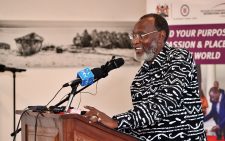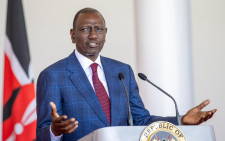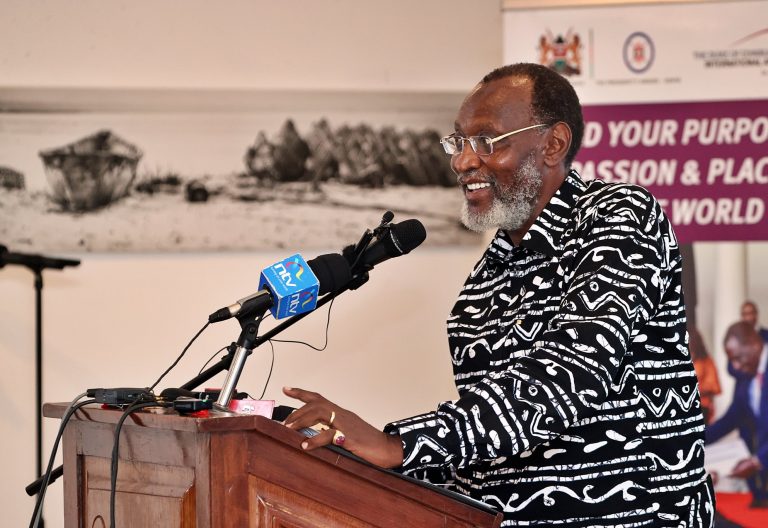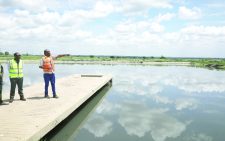Detainee terror suspect Abdul Malik Bajabu recounts life in Guantanamo
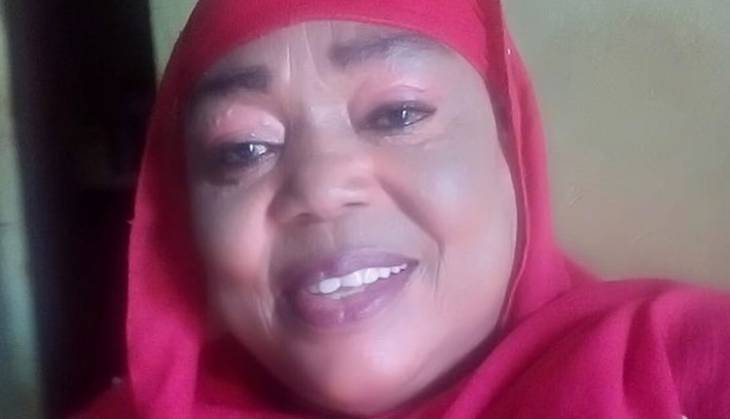
Kenyan terror suspect Abdul Malik Bajabu has for the first time recounted the harrowing experiences he suffered since being detained at the notorious Guantanamo Bay prison, Cuba, in 2007.
From being subjected to routine and degrading physical body inspection while stark naked, going for months without bathing to spending long hours undergoing torture in dark cells, Bajabu recounted how he almost lost hope of ever coming out of prison alive.
His 15-year ordeal was narrated by his elder sister Mwajuma Rajab, a resident of Majengo Mapya in Likoni, Mombasa county.
Bajabu was cleared for release from the notorious detention centre this week after rigorous reviews by US security agents.
Guantanamo Bay detention camp, a US military prison located in Cuba, marked 20 years since its opening this week.
Critics say the prison allows detainees to be held indefinitely outside of normal laws or judicial oversight.
Speaking to People Daily yesterday, Rajab recounted how she had kept in touch with her younger brother through Skype and WhatsApp video calls.
“Upon arrival in Guantanamo Bay, he was kept in a dark torture room. Whenever a terrorist attack occurred anywhere in the world especially affecting Americans, they (detainees) would be forced to strip naked and would be subjected to thorough beatings before being chained to the cell’s walls at the ankles and wrists for days on end,” said Rajab.
As a result, Bajabu, according to Rajab, suffered sleep deprivation and was often denied food and water, besides being subjected to long hours of grilling.
The family, according to Rajab, started communicating with Bajabu around 2013, following the intervention of his lawyer, Mark Maher.
At first, Bajabu would not open up on his incarceration, even though it was obvious from his emaciated frame that he was going through hell, according to Rajab.
But with time, he started opening up about his prolonged ordeal.
“He informed me that he had not bathed for the first four years since arriving at the detention centre and that they were also being subjected to very little food rations, just enough to keep them alive,” Rajab stated.
She, however, revealed that conditions had improved towards the end of Bajabu’s detention, with his brother currently assigned to his own room complete with a washroom and a small kitchen where he cooks his own food.
Guarantee security
From the comfort of his room, her brother today spends time reciting the Quran and reading English novels.
“He has told us that each day, he wakes up at 5am, takes a shower before undertaking routine exercise. He later settles down for breakfast,” she said.
Yesterday, Rajab received a call from Bajabu’s lawyer, disclosing that her brother was excited at the prospects of his release and that he longs to be reunited with his family.
Bajabu, whenever they communicated, would request that they send him some Swahili spices to make his favourite meal, Biriyani.
“We spoke after every three months and we were planning to speak again on January 27, this year,” she added.
Yesterday, Rajab urged the Kenya government to guarantee security for his brother and the entire family since undercover officers drawn from the Anti-Terrorism Police Unit (ATPU) have been trailing them since Bajabu’s arrest.
“I appeal to the government to offer him the necessary support and security even as he is being integrated back to society, let them allow us to live our lives in peace.
We have been threatened, we have undergone torture and all we are asking for is our own peace of mind,” pleaded Rajab.
The father of three was arrested outside his hotel in Tudor, Mombasa, in 2007, over alleged involvement in the Kikambala-based Paradise Hotel terror attack in which 13 people were killed and tens injured.
The attack took place in 2002.
According to Rajab, Bajabu’s wife, Swabrina Mohammud, a Somalia national, never remarried and was excited to receive the news about her husband’s imminent release.
“Upon receiving the news I relayed it to his wife back in Somalia, although we have not been in constant communication due to language barrier… she was excited and promised to be here to receive him back home,” said Rajab.
“We have no details on when and where he will land upon release; we do not know if he will arrive through Mombasa or Jomo Kenyatta International Airport but we will be in constant communication with his lawyer to enable us to plan ahead of the big day,” she added.
Interior Principal Secretary Karanja Kibicho said the US government has good diplomatic relations with the Kenyan government saying that the two governments would involve diplomatic experts in arriving at a ‘decision’ to allow Rajabu to be repatriated back into the country.
“We are aware about his release but this will be a process, that will involve both the Kenyan and US governments in reaching a decision that is right for the two countries. For now, we are yet to begin the process,” he said.
